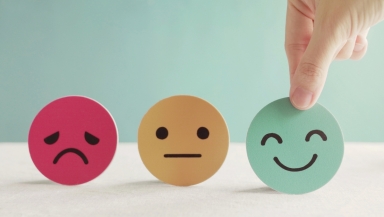
(CP) A new study suggests that the mental health crisis in the United States may be more closely related to a lack of a biblical worldview than to commonly cited causes like chemical imbalances.
The Cultural Research Center at Arizona Christian University released the study Tuesday, attributing the rise in mental health issues, such as anxiety, depression and fear, to what researcher George Barna calls "worldview deficiencies" rather than "psychological or chemical imbalances."
The findings are based on interviews conducted in January with 2,000 U.S. adults aged 18 or older, with a sampling error of plus or minus 2 percentage points at the 95% confidence level.
The report highlighted mental health struggles among younger generations, noting that 56% of Generation Z and 49% of millennials regularly experience anxiety, fear or depression. Generation Z refers to the youngest group of American adults, while millennials are defined as those born between 1984 and 2002. In total, one in three adults from these generations has at least one diagnosable mental disorder.
Barna sees a direct correlation between mental health challenges and the lack of a biblical worldview, which the Cultural Research Center defines as "a means of experiencing, interpreting, and responding to reality in light of biblical perspectives." The CRC evaluates an individual's biblical worldview based on their answers to a series of belief-related questions.
Only 1% of Generation Z and 2% of millennials possess a biblical worldview, according to Barna. He commented that it is "not uncommon to find a young adult who trusts feelings more than facts, sees no inherent value to life, believes in Karma, and rejects the existence of the biblical God."
"Add to this a lack of any sense of purpose or meaning, and the idea that truth is subjective," Barna explained. "This common set of components results in a lifestyle that is inconsistent, chaotic, frustrating, and lacking hope. Anxiety, depression, and fear are virtually inescapable in such a life."
Barna highlighted several beliefs he considers contributors to mental unrest among young people. Seven out of ten individuals under 40 said their life lacks a clear purpose, while four out of five who reject God reported frequent experiences of fear and anxiety.
"The lifestyle that results from these common worldview components is one of chaos and fear," Barna said. "However, embracing a biblical worldview offers a sense of purpose, security, and peace that can alleviate many of these mental health challenges."
Barna also pointed to syncretism — described as a "blend of conflicting beliefs drawn from various worldviews" — as the dominant worldview among young Americans, adding that it's "not surprising that anxiety, depression and fear are rampant among young adults who adopt syncretism."
"Without a solid foundation of truth, their lives become inconsistent and chaotic," he said, emphasizing that "the biblical worldview, by contrast, provides a framework that fosters emotional stability."
Barna acknowledged that some situations do require conventional mental health treatments, such as counselling, prescription drugs or physical therapy, but he said that other mental health struggles may stem from "worldview components that trigger and sustain the condition."
"If people instead embraced the core tenets of the biblical worldview, their lives would not be perfect," Barna concluded, "but they would avoid many of the emotional and psychological pitfalls we're seeing today."
The report also examined the mental health of individuals whose beliefs directly conflict with the biblical worldview. Among those disengaged from both political involvement and Christian faith, 82% reported frequent experiences of anxiety, depression and fear, compared to 67% of respondents who were more engaged.
Incidents of fear, anxiety and depression were higher (46%) among those who believe gifted mediums can communicate with the spirits of the dead, compared to 34% of those who do not share this belief.
Similarly, 40% of respondents who consider "Mother Earth or the Universe" as an important guide reported mental health challenges, compared to 25% who did not. Among individuals classified as "consistently liberal" on social and political issues, 38% experienced frequent anxiety, depression or fear, while only 22% of those who did not identify as consistently liberal reported the same challenges.













